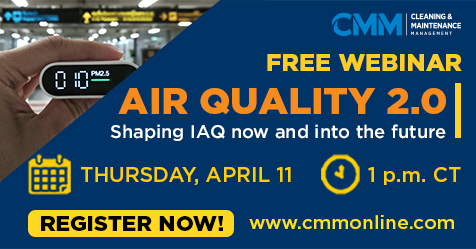One of the interesting things I’ve learned in my years of dealing with indoor air quality problems (IAQs) is that everyone reacts differently. One person might sneeze, another might get a headache, and yet a third have no reaction at all. However, many employers mistakenly believe if there is an IAQ problem, everyone should be reacting to it in the same way.
My sister-in-law was highly allergic to perfumes, specifically women’s perfume. When she went to church and a heavily perfumed lady came in and sat down in front of her, my sister-in-law had to move to avoid getting a headache. Her husband, on the other hand, never noticed the lady or her perfume.
The same scenario plays out in workplaces across the country. Often one employee will complain about “sick building syndrome.” But until several others complain about the air quality in the same area of the building, the employer does not think there is a real problem. It’s time for employers to take all employee complaints—even if no one else is complaining—seriously.
Mold Sensitivity Varies
Although mold is a main source of poor IAQ, government agencies have not set standards for levels of mold contamination in indoor air environments. The reason for the lack of standards is that people respond differently to mold. Why is that true?
People have different immune systems. Some people are very concerned about the water they drink, the food they eat, and the amount of exercise they get. Others are not so concerned. Unhealthy people with suppressed immune systems may react to IAQ contaminants more than a healthier person with a strong immune system.
Women can be more sensitive to their physical environment than men. That sounds biased but it’s simply a fact. My sister-in-law could not go into her basement because of the mold, but her husband and four boys played ping-pong down there with no apparent reaction. When I talk with women who are experiencing IAQ problems while their husbands are “oblivious,” I tell them that opposites attract.
Additionally, some molds are more toxic than others. Mold is ubiquitous, even in indoor environments, so we are seldom in an environment where mold is not present. Why don’t all of us react? Some folks react to specific molds while others won’t react at all. Some molds produce high levels of mycotoxins while others do not. A large amount of mold can be problematic to some people while a small amount may not affect them at all. The type of mold, the amount of mold, and the environment in which the mold is growing are all factors influencing a person’s reaction.
One Employee Reaction Matters
As employers, we should take worker complaints about IAQ and mold problems seriously. If we are proactive in dealing with environmental issues, even if we are not personally experiencing these issues ourselves, it will validate the concerns of those who may be more sensitive and establish a confidence that we are concerned about the health and safety of our fellow workers.
Posted On June 3, 2019




